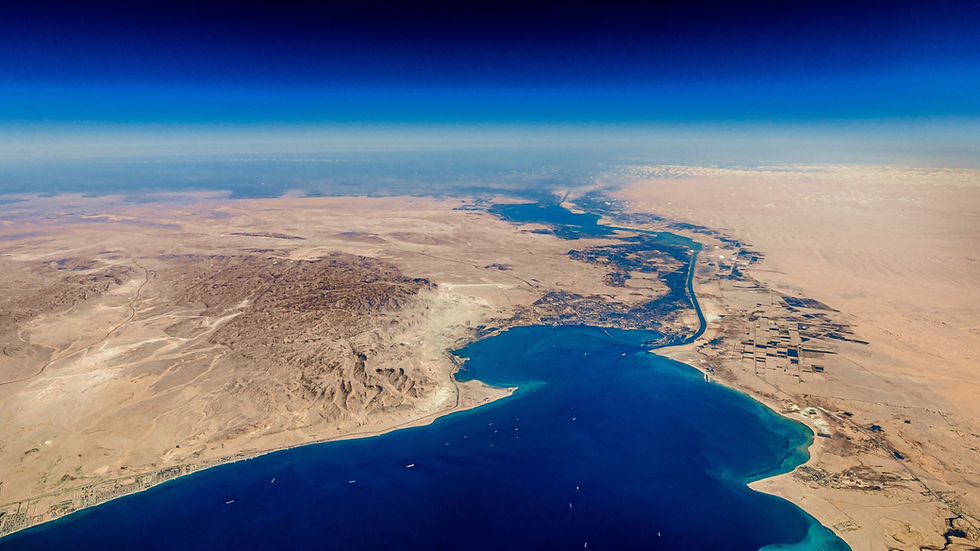The tribute at the Olympic Games to the Algerians killed in the “Paris massacre”
- Clara Arias
- 27 jul 2024
- 3 Min. de lectura
Actualizado: 2 oct 2024
On board the boats that transported the athletes at the opening ceremony of the Paris Olympic Games on the Seine River, the Algerian athletes threw roses to remember what happened in the same place in 1961

The opening ceremony of the Paris 2024 Olympic Games, which lasted almost four hours on the Seine River and the streets of Paris, had an emotional moment aboard one of the boats that transported the delegations at the beginning. Athletes from Algeria threw roses into the river to commemorate their compatriots who died in 1961 during what is remembered as “the Paris massacre”.
The scene of just seconds in which the Algerian athletes speak to the camera and then throw roses into the Seine River, quickly went viral through social media. The theme immediately resonated in the media of the host country: "Aboard a boat, in the shade of green and white flags, the Algerian athletes threw flowers into the Seine. A symbolic gesture made under the bridge where the protesters died as martyrs," wrote the Ouest-France. The Facebook page of the Algerian Olympic and Sports Committee posted this video, with a message detailing that this gesture was made in honor of the "innocent martyrs" who lost their lives in October 1961.
THE PARIS MASSACRE
In a context of French occupation of North Africa, the Algerian NLF (National Liberation Front) had been waging a fierce struggle for independence since 1954. After seven years of struggle and repression, the NLF called for a peaceful demonstration in opposition to a curfew imposed on Algerians living in Paris, to which the head of the Paris police, Maurice Papon, had openly encouraged that the response of his agents would be violent.
It was on October 17, 1961 when around 30,000 Algerians took to the streets of the French capital to fight for their freedom, which was quickly cut short by police action, killing hundreds of demonstrators and throwing dozens into the Seine River.
In the space of a few hours, more than 12,000 people were driven, in police coaches or in RATP buses requisitioned for the purpose, to the former Beaujon de Vincennes hospital, to the courtyard of police headquarters, to the Coubertin stadium and, above all, to the Parc des Expositions. A few days after the Minister of the Interior, Roger Frey, announced before the National Assembly the resumption of forced returns to Algeria, the policy applied for many years against "undesirable" Algerians was thus radicalized. In the context of the fight against "terrorism" and following the death of several guards at the hands of NLF members, such a change of scale was bound to be accompanied by an increase in violence and brutality.

The difficulty with this story is the great censorship that was experienced both at that time and in the following years, so that, to this day, there are still no exact figures of the Algerians who died that day. This silencing was suffered by the French journalist Paulette Péju, who wrote a short book on the subject, which would end up being confiscated by the French police and would not be available to the public until 2000.
The first time that a figure of power within France recognized the great massacre of Paris was the now former president François Hollande in 2012, so that, some time later Emmanuel Macron assured that the crimes committed under the authority of the Parisian police chief were "inexcusable".
In March 2024, the French National Assembly voted for the government to establish a day in commemoration of the "massacre of October 17, 1961 in Paris". The proposal sought to give "recognition and condemnation of the massacre (...) committed under the authority of the then police prefect, Maurice Papon," detailed Le Monde, which at the time already raised the contrast between the numbers reported at the time by the authorities and the real ones: "The official figure of three dead and some sixty wounded is far below the estimates of historians, who record ‘at least several dozen’ deaths."
While awaiting official confirmation of the number of Algerians who lost their lives that day and official recognition of this event by the French authorities, Algerian athletes have taken it upon themselves to bring that October 17, 1961 back into the public eye so that it will never be forgotten.




Comentarios